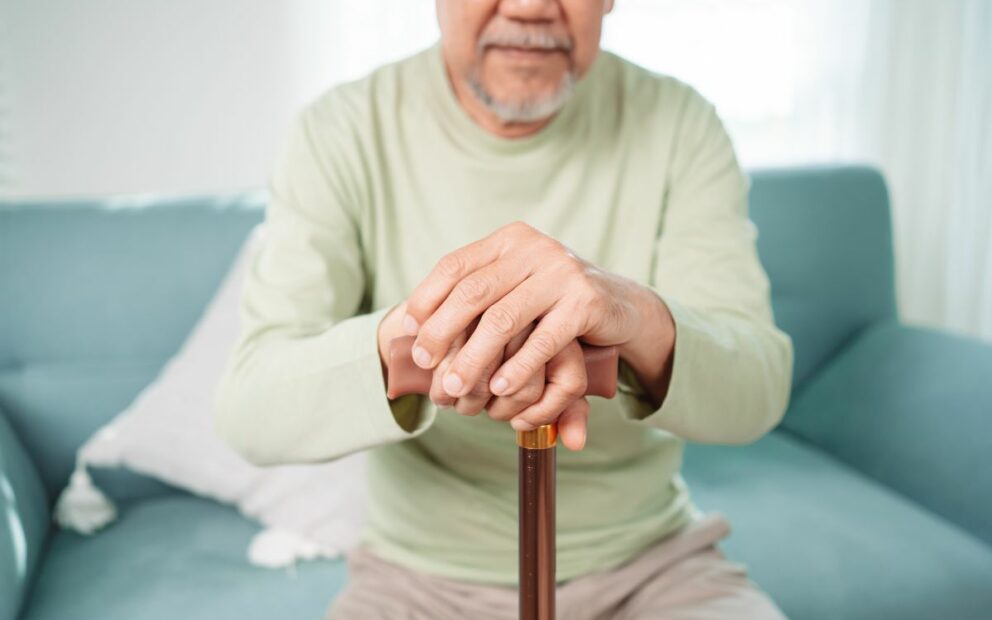Becoming an unintentional landlord during COVID-19

David Roberts* lives in a trailer in rural Minnesota. His friend Joann asked to stay in his home for a week before she went into treatment in early 2020. Roberts is four years sober and wanted to support her recovery, so he agreed that she could stay as long as she didn’t drink.
Then the COVID-19 pandemic shut everything down — including the treatment center. Like many others who opened their homes for various reasons in early 2020, Roberts became an unintentional landlord.
Shut in Together
Roberts is 70 years old and walks with a cane. He has chronic obstructive pulmonary disease (COPD), neuropathy in his feet, and chronic back pain. When Joann started drinking, he didn’t catch it at first. She drank at night, after he went to sleep. Once he realized she was drinking, he told her she had to go. She refused, insisting the trailer was half hers. “I thought she’d just be here for a week,” says Roberts. “But the pandemic hit and I was stuck with her for over a year. I spent most of it walking on eggshells.”
Joann became increasingly violent. She went into rages, yelling at Roberts and threatening him. She would block the doorway so he couldn’t leave the room. Roberts received some services from the county to help him live independently, but the county staff didn’t feel safe with Joann there. The acrimony in the household was too much, and they stopped coming.
“I couldn’t protect myself from her,” Roberts says. “She would yell at the top of her lungs, and I was scared. I’d walk away, and she’d come busting in and stand in my way.”
One night, Joann got drunk at a friend’s house. She talked about suicide, and her friend called an ambulance. She was admitted to the hospital, and Roberts saw his chance to get her out of his home. He talked to a caseworker, who referred him to Legal Aid.
Petitioning for a Restraining Order
“David has a lot of disabilities, and he started out trying to help someone else,” says Karla Krueger, Supervising Attorney in the St. Cloud office. “He was in a really difficult spot when he came to us. He was so depressed by the situation it was threatening his sobriety.”
Krueger helped Roberts look at his options. They decided to petition the court for a Harassment Restraining Order (HRO) against Joann. Joann didn’t want an HRO on her record, and she wanted to store her stuff in Roberts’ trailer while she was in long-term treatment. She asked for a hearing.
“I couldn’t get Joann out by myself,” says Roberts. “It was good to have a lawyer, and I’m low-income, so it’s great that she could help me for free.”
Krueger worked with Roberts to document the facts and prepare for the hearing. Roberts has some memory issues, so the preparation was important. Roberts’ sister testified, and they also had testimony about the hostile environment from the county workers. The judge granted the HRO.
“Without a lawyer, I wouldn’t have known what to do,” Roberts says. “The whole thing was devastating and frustrating and it’s fortunate she got out when she did because I was almost to the point of having to drink myself. And if I drink, in two weeks I’ll be dead.”
Staying Safe at Home
Krueger has seen a number of unintentional landlord cases over the past year. People with disabilities are especially vulnerable to financial exploitation and physical abuse from people living in the same home with them.
“It’s really tough for people to handle these situations,” Krueger says. “It can be hard for them to ask for help, or even to know who to call. I appreciate being able to help them through it.”
Joann is now in long-term treatment, and Roberts’ home has settled back to normal. The neighbors all know that if Joann shows up in the neighborhood, they should call the police.
“Karla explained things so I could understand,” says Roberts. “She told me what I needed to do and I followed her suggestions. She made me feel comfortable. She took me step by step through it all, including talking to the judge, and everything turned out good.”
*Name changed to protect client identity

